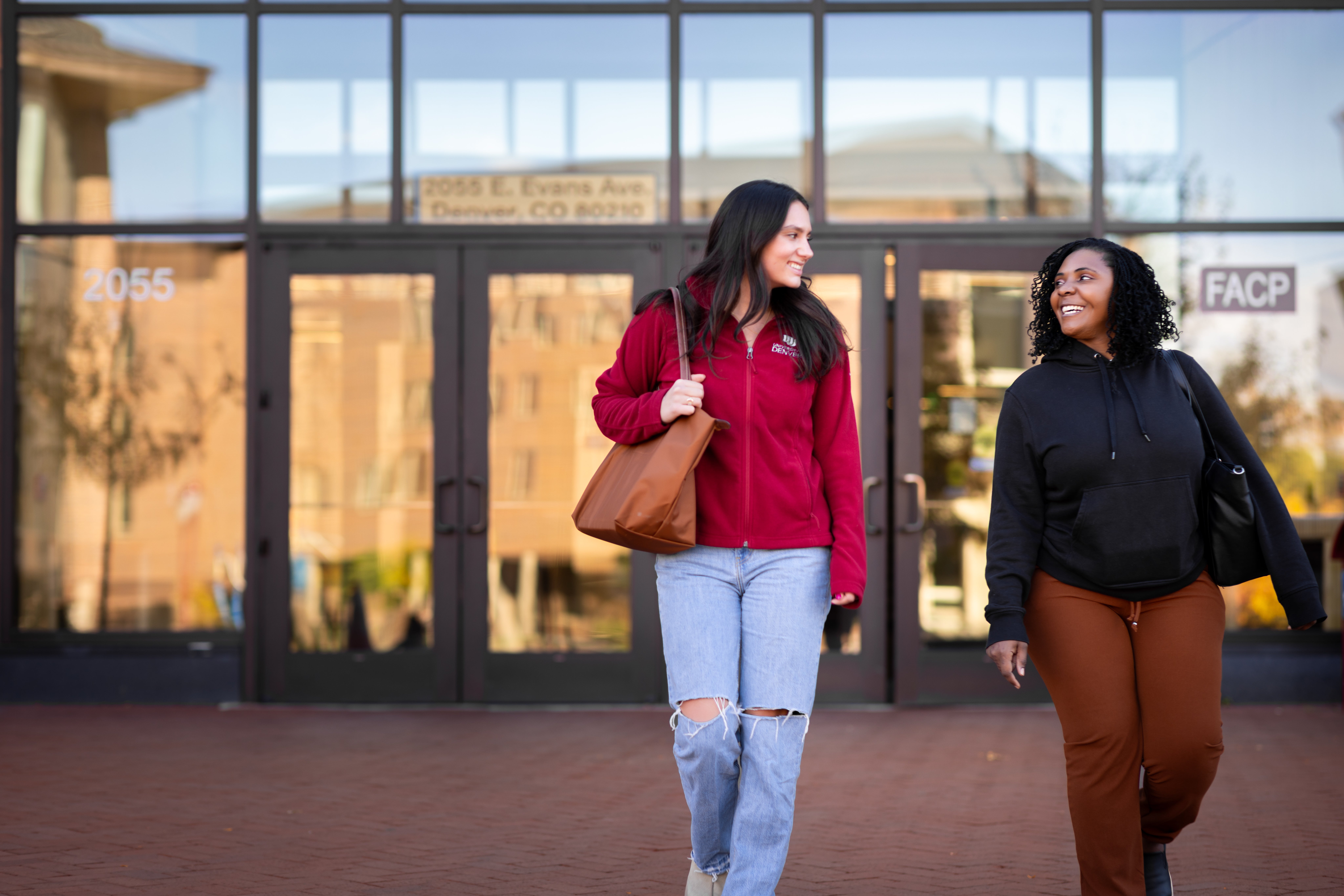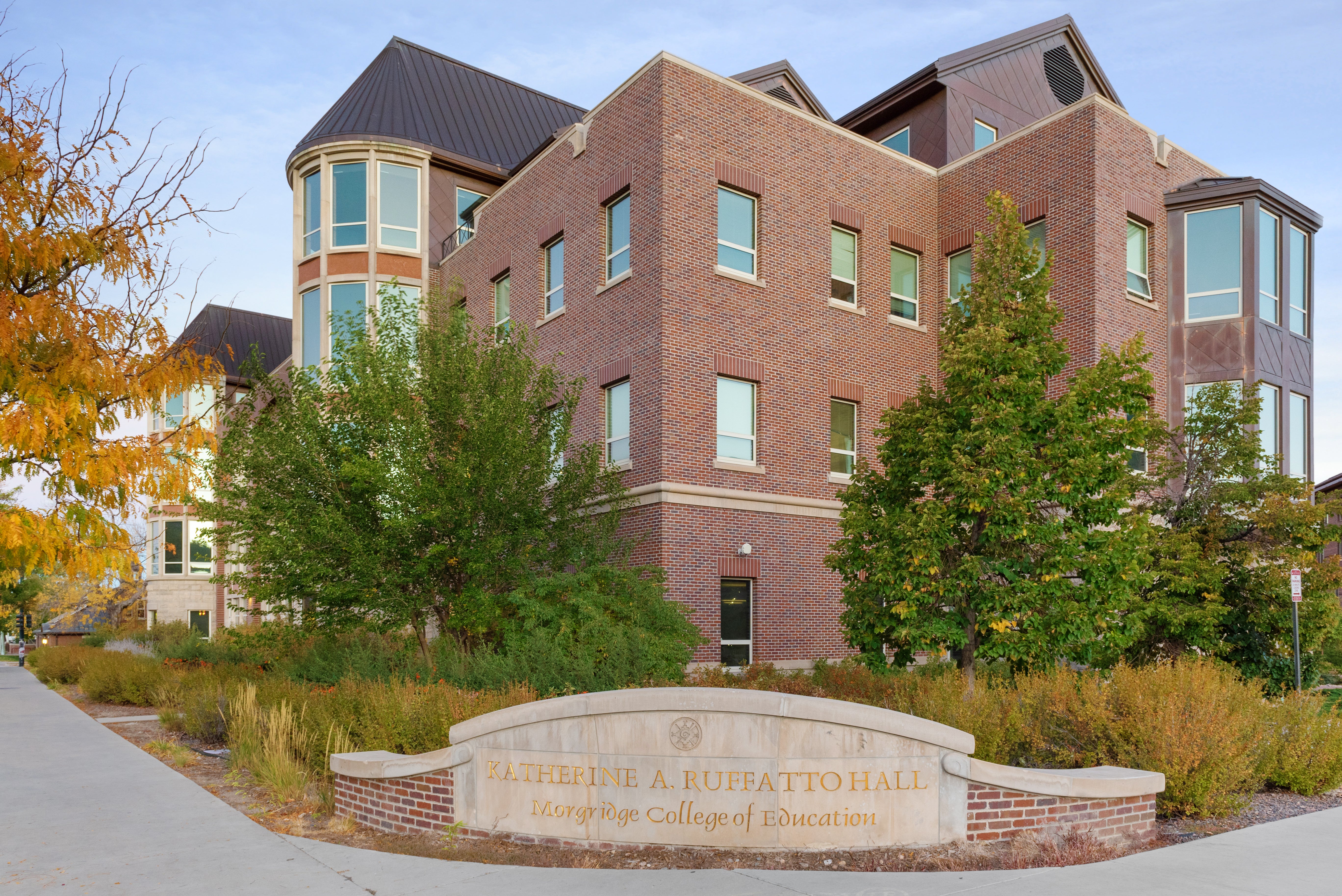Schools are searching for free creativity assessments. Two DU professors just made it happen.
Measuring creativity has historically been a difficult and expensive endeavor, one which psychologists and educators believe is important, but is often out of reach. Since the 1970’s, many in the industry have used The Torrance Test of Creative Thinking (TTCT), a fantastic resource but a significant cost for a budget-limited school district. Enter University of Denver (DU) Morgridge College of Education professors Drs. Denis Dumas and Peter Organisciak, who are launching a free website to score creativity assessments.
Drs. Denis Dumas and Peter Organisciak, Assistant Professors of Research Methods and Information Science and developers of the free Open Creativity Scoring website.
Dumas and Organisciak, both Assistant Professors of Research Methods and Information Science, have found a powerful synergy for the scientific study of creativity. Dumas’ previous research has focused on educational and psychological measurement, and Organisciak focuses on large-scale text analysis rooted in information science. Dumas’ office in Morgridge College is adjacent to Organisciak’s, and the two realized that they could collaborate on something big.
In the past year, Dumas and Organisciak have focused on automatically and reliably scoring creativity assessments such as the Alternate Uses Task (AUT). The AUT is an activity where participants are given an object—a boring, everyday object, such as a book or a cup—and have a time limit to list as many ideas as possible to use that object in an atypical, ‘alternate’ way.
Their collaboration works like this: Dumas administers the AUT to participants, and Organisciak developed code for an online algorithm, where Dumas can upload the responses he collects. The algorithm scores the alternate uses task – something previously only done by a handful of other institutions, typically at significant cost. The two realized their creation could change how psychologists approach creativity testing. No longer limited by cost, this could open doors for universal testing in vulnerable school districts or psychological clinics with little resources.
With funding from a Morgridge College flowback grant, Dumas and Organisciak built a free and open website where individuals using the AUT can upload their responses and have them scored. This week their website, Open Creativity Scoring, is set to launch, and they could not be more excited.
Dumas and Organisciak see this work as one step in a larger trend of using computing to break free of the restraints of close-ended responses in psychological testing.
“One of the biggest limitations in educational and psychological testing is our reliance on multiple choice items,” said Dumas, explaining that often psychologists or educators use multiple-choice tests because open-ended scoring is too expensive to be within reach.
“We’ve spent the past few years focused on improving what we know about measuring creativity. With the website, we can make that work accessible to practitioners and other researchers,” said Organisciak. “Both testing and studying creativity has been difficult in the past, and we’re eager to see what others can do with access to a reliable, consistent way to measure it.”
“Our work, when you put it together, opens a really important door,” Dumas continued. “We are greater than the sum of our parts and I think it has to do with Morgridge. At most universities, we might have been herded into our own disciplinary silos and never met each other, but here we are really encouraged to work in an interdisciplinary way. Had our offices not been close, we would not have realized our potential.”
So far, everything from their research has been made free, something they prioritize in order to make an impact. According to Organisciak, this is a way to make state of the art research assessible to everyone. He stresses that many people don’t have access to an academic journal to read a paper about writing an algorithm, but with this website, they don’t have to.


